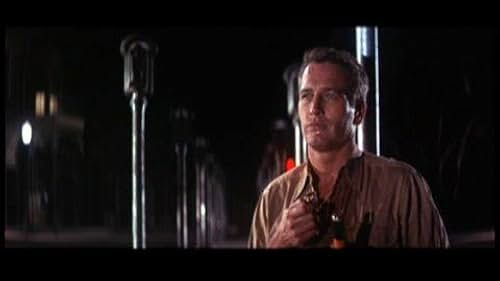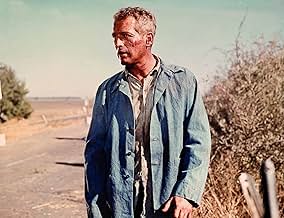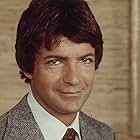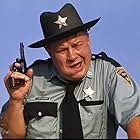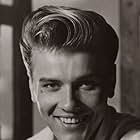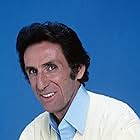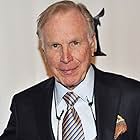Un tranquilo sureño es sentenciado a dos años en una prisión rural, pero rehúsa obedecer.Un tranquilo sureño es sentenciado a dos años en una prisión rural, pero rehúsa obedecer.Un tranquilo sureño es sentenciado a dos años en una prisión rural, pero rehúsa obedecer.
- Dirección
- Guionistas
- Elenco
- Ganó 1 premio Óscar
- 5 premios ganados y 11 nominaciones en total
Harry Dean Stanton
- Edgar 'Tramp' Potter
- (as Dean Stanton)
Resumen
Reviewers say 'Cool Hand Luke' delves into themes of rebellion and individualism against oppressive authority, highlighted by iconic scenes like the egg-eating contest and poignant moments with Luke's mother. Paul Newman's performance as Luke is widely celebrated, along with memorable lines and strong supporting roles. The film's gritty atmosphere, enhanced by Stuart Rosenberg's direction and cinematography, receives high praise. However, some critics find the narrative slightly predictable, though it doesn't detract significantly from the overall impact.
Opiniones destacadas
Greetings again from the darkness. I went way too many years without watching this movie again, so when Cinemark included it in the summer classic film series, I was in my seat nice and early. Mention this movie and the first thing people do is quote one of the most famous lines in movie history: "What we have here is failure to communicate." No question that's a great line. But there is so much more to this movie and it holds up beautifully 45 years later.
Based on the novel by Donn Pearce, who spent two years on a chain-gang, this is the story of Luke (Paul Newman) who just can't bring himself to conform to the rules, regardless whether those be the rules of the military, society, prison, or those self-imposed by the convicts. We are introduced to Luke as he drunkenly cuts off the top of parking meters on main street of a small town. Later, in a throw away line, we learn he was gaining revenge on someone. It's the clear indication that while he doesn't always want to fit in, Luke clearly knows right from wrong.
There are so many terrific scenes in this film, that it's not possible to discuss each. Every scene with the prison warden, played by Strother Martin, is intense. Each of the Boss guards are frightening, especially Morgan Woodward as the sharpshooter behind the mirrored shades. There are numerous impactful scenes featuring the group of convicts. Even though we learn little about the individuals, we realize the fragile male psyche is on full display. Despite the power of all of these characters and scenes, the real strength of the film is the relationship between Luke and Dragline (George Kennedy). Watching the early cat and mouse game, and the subsequent transfer of power, feature two amazing actors at the top of their game.
George Kennedy rightfully won the Best Supporting Actor award and continued on to become one of the most successful and prolific character actors of the 70's and 80's, and his career culminated with his iconic role in the Naked Gun series. As for Paul Newman, this is one of his best performance in a long line of standout performances. This one is in the middle stage of his career and he exuded manliness with a touch of sensitivity. He and Strother Martin would meet again in one of the best sequences of Butch Cassidy and the Sundance Kid.
Watching Luke win over all the convicts, including the previous leader played by Kennedy is stunning, yet gut-wrenching when offset by the scenes with the guards who are hell bent on getting Luke to understand his place. They understand the risk he poses to the systematic rhythms of the prison.
The supporting cast is downright incredible. This was the feature film debut for: Ralph Waite (4 years later he became the beloved paternal figure of TV's The Waltons); Joe Don Baker(Buford Pusser from Walking Tall); James Gammon (later the crusty manager in Major League); and Anthony Zerbe, another iconic character actor of the 70's and 80's. Also featured are Dennis Hopper, Harry Dean Stanton (singing a few songs), Wayne Rogers (from MASH), Richard Davalos (James Dean's brother Aron in East of Eden), and Rance Howard (Ron's dad as the sheriff). In a brief, but truly great scene, Jo Van Fleet (also from East of Eden), appears as Arletta, and we quickly understand Luke's background.
Often overlooked by film historians, "Lucille" putting on a show for the convicts as she washes her car, is a scene that is meant for more than titillation. As she creatively buffs the windows, the reaction of the convicts reminds us that these are still men and no amount of humiliation and degradation can change that. One of my friends argues that Joy Harmon was clearly cheated out of an Oscar for this scene.
The score is the handy work of Lalo Schifrin and expertly captures the moment ... especially in the black top scene. Director Stuart Rosenberg was known only for his TV work when he got this script. He went on to direct another prison movie in 1980 called Brubaker. Starring Newman's Butch Cassidy co-star Robert Redford, the film was a decent prison drama, but not at the level of Cool Hand Luke ... which by the way, was installed into the National Film Registry in 2005.
Based on the novel by Donn Pearce, who spent two years on a chain-gang, this is the story of Luke (Paul Newman) who just can't bring himself to conform to the rules, regardless whether those be the rules of the military, society, prison, or those self-imposed by the convicts. We are introduced to Luke as he drunkenly cuts off the top of parking meters on main street of a small town. Later, in a throw away line, we learn he was gaining revenge on someone. It's the clear indication that while he doesn't always want to fit in, Luke clearly knows right from wrong.
There are so many terrific scenes in this film, that it's not possible to discuss each. Every scene with the prison warden, played by Strother Martin, is intense. Each of the Boss guards are frightening, especially Morgan Woodward as the sharpshooter behind the mirrored shades. There are numerous impactful scenes featuring the group of convicts. Even though we learn little about the individuals, we realize the fragile male psyche is on full display. Despite the power of all of these characters and scenes, the real strength of the film is the relationship between Luke and Dragline (George Kennedy). Watching the early cat and mouse game, and the subsequent transfer of power, feature two amazing actors at the top of their game.
George Kennedy rightfully won the Best Supporting Actor award and continued on to become one of the most successful and prolific character actors of the 70's and 80's, and his career culminated with his iconic role in the Naked Gun series. As for Paul Newman, this is one of his best performance in a long line of standout performances. This one is in the middle stage of his career and he exuded manliness with a touch of sensitivity. He and Strother Martin would meet again in one of the best sequences of Butch Cassidy and the Sundance Kid.
Watching Luke win over all the convicts, including the previous leader played by Kennedy is stunning, yet gut-wrenching when offset by the scenes with the guards who are hell bent on getting Luke to understand his place. They understand the risk he poses to the systematic rhythms of the prison.
The supporting cast is downright incredible. This was the feature film debut for: Ralph Waite (4 years later he became the beloved paternal figure of TV's The Waltons); Joe Don Baker(Buford Pusser from Walking Tall); James Gammon (later the crusty manager in Major League); and Anthony Zerbe, another iconic character actor of the 70's and 80's. Also featured are Dennis Hopper, Harry Dean Stanton (singing a few songs), Wayne Rogers (from MASH), Richard Davalos (James Dean's brother Aron in East of Eden), and Rance Howard (Ron's dad as the sheriff). In a brief, but truly great scene, Jo Van Fleet (also from East of Eden), appears as Arletta, and we quickly understand Luke's background.
Often overlooked by film historians, "Lucille" putting on a show for the convicts as she washes her car, is a scene that is meant for more than titillation. As she creatively buffs the windows, the reaction of the convicts reminds us that these are still men and no amount of humiliation and degradation can change that. One of my friends argues that Joy Harmon was clearly cheated out of an Oscar for this scene.
The score is the handy work of Lalo Schifrin and expertly captures the moment ... especially in the black top scene. Director Stuart Rosenberg was known only for his TV work when he got this script. He went on to direct another prison movie in 1980 called Brubaker. Starring Newman's Butch Cassidy co-star Robert Redford, the film was a decent prison drama, but not at the level of Cool Hand Luke ... which by the way, was installed into the National Film Registry in 2005.
Paul Newman was nominated for an Oscar and George Kennedy received one for his work in this allegorical prison drama. Luke Jackson (Paul Newman) is sentenced to a stretch on a southern chain gang after he's arrested for drunkenly decapitating parking meters. While the avowed ambition of the captain (Strother Martin) is for each prisoner to "get their mind right," it soon becomes obvious that Luke is not about to kowtow to anybody. When challenged to a fistfight by fellow inmate Dragline (George Kennedy), Luke simply refuses to give up, even though he's brutally beaten. Luke knows how to win at poker, even with bad cards, by using his smarts and playing it cool. Luke also figures out a way for the men to get their work done in half the usual time, giving them the afternoon off. Finally, when Luke finds out his mother has died, he plots his escape; when he's caught, he simply escapes again. Soon, Luke becomes a symbol of hope and resilience to the other men in the prison camp -- and a symbol of rebelliousness that must be stamped out to the guards and the captain. Along with stellar performances by Newman, Kennedy, and Martin, Cool Hand Luke features a superb supporting cast, including Ralph Waite, Harry Dean Stanton, Dennis Hopper, Wayne Rogers, and Joe Don Baker as members of the chain gang.
One of the reasons that the late 60s/early 70s was such a powerful era in filmmaking is the emergence of the anti-hero (defined as an individual with heroic qualities, but not in a position we would usually find a hero). This is symbolized greatly in `Cool Hand Luke'. We can identify with Luke because his crime is venial and his concerns over the great questions of life are ours. It is because of this and his persuasive charm that the other prisoners (played remarkably well by Kennedy and a host of others to include Wayne Rogers, Ralph Waite, Dennis Hopper and one of the actors who played a crewmember on `Alien') live vicariously through him.
Filled with memorable scenes (the boxing match, 50 eggs, the fealty of his fellow prisoners who help him finish his food after his stomach is shrunk in solitary confinement, `shakin' it here boss', the sneezing dogs, and of course the carwash part) and outstanding character development (created by what is said and what is not said, i.e. the visiting brother), one of screen history's most repeated lines and the great acting of Newman, this movie deserves to be called a classic. Released the same year as `Bonnie and Clyde', it makes one long for the days when you needed a real script to make a movie.
Filled with memorable scenes (the boxing match, 50 eggs, the fealty of his fellow prisoners who help him finish his food after his stomach is shrunk in solitary confinement, `shakin' it here boss', the sneezing dogs, and of course the carwash part) and outstanding character development (created by what is said and what is not said, i.e. the visiting brother), one of screen history's most repeated lines and the great acting of Newman, this movie deserves to be called a classic. Released the same year as `Bonnie and Clyde', it makes one long for the days when you needed a real script to make a movie.
Having had the advantage of reading Donn Pearce's novel about a year before seeing Cool Hand Luke, it was with great anticipation that I awaited it's transfer to the big screen. I was not disappointed.
Cool Hand Luke could easily be classified by the misguided as just a prison yarn, but it is so much more than that. It is the story of a man who refuses to be nailed down or conform to the rules and regulations of a society that he has never craved to fit into. When Lucas Jackson is arrested for cutting heads off parking meters, his explanation to the prison captain(Strother Martin) is "Small Town, not much to do in the evening", which would have us believe he was just being drunk and stupid. Later, to one of the other inmates he mutters the same answer, but importantly adds "just settlin some old scores". It is a brief but important point in helping to define the character of Luke beyond just being drunk and damaging public property. As a service man, we also discover that Luke won a bronze star, achieved the rank of sergeant but came out as a private. Again, early evidence that Luke is unable to conform to any body's rules but his own. Yet, we are given clear evidence that Luke knows what is right in principal and what is wrong. At one point in the film when they are putting Luke in the box under less than reasonable circumstances, he tells the boss, "calling it your job don't make it right, Boss." In a visit from his mother Arletta(Jo Van Fleet), Luke says plenty about his own character by telling her, "A man's got to go his own way" or as he also puts it, "I tried to live always free and above board like you but I can't seem to find no elbow room".
As Luke enters the prison that will supposedly be his home for the next two years, we meet the other inmates. Some of them wear chains, some of them do not. It is a point early in the film that director Stuart Rosenberg, emphasizes. We understand quickly that sooner or later you conform. You either walk the line the way the bosses tell you to, or they will find the means to get you to walk the line. As the Captain reiterates, "for your own good, you'll learn the rules" A point driven home often.
What we discover about their crimes is minuscule. One is jailed for manslaughter after hitting a pedestrian with his car, another is a paper hanger, another new inmate is charged with breaking, entering and assault. The nature of their crimes is unimportant to us. It enables to view these prisoners as men, and while we don't feel any genuine sympathy for them, feeling disgusted by their crimes would have been a distraction from the true purpose of Pearce's story, and Luke as the focal point.
Because of his individuality, it doesn't take Luke long before he unexpectedly becomes a hero to the other inmates. It is not a role he chooses, or even wants. It unexpectedly imposes the burden on him of having to live up to the expectations of others. He never truly understands the nature of this hero worship, and would be just as happy if he didn't have to deal with it. He is still trying to find his way in the world, and if there is any real purpose for his existence.
Another principal character is Dragline(George Kennedy). It is he who finally establishes the fact that Cool Hand Luke is a man who can not be beaten. Dragline's admiration for Luke seems to extend from the fact that he(Dragline)has learned the rules on how to get by, but yet regrets having lost some of his own individuality in the process. He is the rest of the inmates in microcosm. I can't remember a role that George Kennedy has ever been better in, and he deservedly won the best supporting actor award.
Cool Hand Luke is not without it's humorous moments especially in the early going. It is these moments that help move the film from the early stages to the darker more despairing later stages. Perhaps, for that reason alone we are even more effected by Luke's dilemma.
In translating his novel to the screen Donn Pearce along with Frank Pierson, has managed to bring the heart and soul of his nove to the big screen. Lalo Shifrin's memorable score emphasizes often the repeated drudgery of working on the chain gang. Director Stuart Rosenberg made more good films after Cool Hand Luke, but in my opinion never achieved the same degree of perfection that he does here.
As Cool Hand Luke, Paul Newman give one of the most memorable performances in a long distinguished career. It is not an easy task portraying a man who travels the road from being a sincere individualist, to a man who may be beaten and defeated, yet in the end is still unwilling to accept that fate. Although Rod Steiger won the best actor award that year, one could argue that Newman's role was more difficult, as it required substantially different subtle ranges in character. As for the failure of Cool Hand Luke to achieve a Best Picture nomination, I'm at a loss to explain that malfunction, especially when the likes of Doctor Doolittle and Guess Who's Coming To Dinner, far lesser efforts than this were nominated.
Cool Hand Luke is a true classic in every sense of the word. It is a film that will long be remembered.
My grade: A+
Cool Hand Luke could easily be classified by the misguided as just a prison yarn, but it is so much more than that. It is the story of a man who refuses to be nailed down or conform to the rules and regulations of a society that he has never craved to fit into. When Lucas Jackson is arrested for cutting heads off parking meters, his explanation to the prison captain(Strother Martin) is "Small Town, not much to do in the evening", which would have us believe he was just being drunk and stupid. Later, to one of the other inmates he mutters the same answer, but importantly adds "just settlin some old scores". It is a brief but important point in helping to define the character of Luke beyond just being drunk and damaging public property. As a service man, we also discover that Luke won a bronze star, achieved the rank of sergeant but came out as a private. Again, early evidence that Luke is unable to conform to any body's rules but his own. Yet, we are given clear evidence that Luke knows what is right in principal and what is wrong. At one point in the film when they are putting Luke in the box under less than reasonable circumstances, he tells the boss, "calling it your job don't make it right, Boss." In a visit from his mother Arletta(Jo Van Fleet), Luke says plenty about his own character by telling her, "A man's got to go his own way" or as he also puts it, "I tried to live always free and above board like you but I can't seem to find no elbow room".
As Luke enters the prison that will supposedly be his home for the next two years, we meet the other inmates. Some of them wear chains, some of them do not. It is a point early in the film that director Stuart Rosenberg, emphasizes. We understand quickly that sooner or later you conform. You either walk the line the way the bosses tell you to, or they will find the means to get you to walk the line. As the Captain reiterates, "for your own good, you'll learn the rules" A point driven home often.
What we discover about their crimes is minuscule. One is jailed for manslaughter after hitting a pedestrian with his car, another is a paper hanger, another new inmate is charged with breaking, entering and assault. The nature of their crimes is unimportant to us. It enables to view these prisoners as men, and while we don't feel any genuine sympathy for them, feeling disgusted by their crimes would have been a distraction from the true purpose of Pearce's story, and Luke as the focal point.
Because of his individuality, it doesn't take Luke long before he unexpectedly becomes a hero to the other inmates. It is not a role he chooses, or even wants. It unexpectedly imposes the burden on him of having to live up to the expectations of others. He never truly understands the nature of this hero worship, and would be just as happy if he didn't have to deal with it. He is still trying to find his way in the world, and if there is any real purpose for his existence.
Another principal character is Dragline(George Kennedy). It is he who finally establishes the fact that Cool Hand Luke is a man who can not be beaten. Dragline's admiration for Luke seems to extend from the fact that he(Dragline)has learned the rules on how to get by, but yet regrets having lost some of his own individuality in the process. He is the rest of the inmates in microcosm. I can't remember a role that George Kennedy has ever been better in, and he deservedly won the best supporting actor award.
Cool Hand Luke is not without it's humorous moments especially in the early going. It is these moments that help move the film from the early stages to the darker more despairing later stages. Perhaps, for that reason alone we are even more effected by Luke's dilemma.
In translating his novel to the screen Donn Pearce along with Frank Pierson, has managed to bring the heart and soul of his nove to the big screen. Lalo Shifrin's memorable score emphasizes often the repeated drudgery of working on the chain gang. Director Stuart Rosenberg made more good films after Cool Hand Luke, but in my opinion never achieved the same degree of perfection that he does here.
As Cool Hand Luke, Paul Newman give one of the most memorable performances in a long distinguished career. It is not an easy task portraying a man who travels the road from being a sincere individualist, to a man who may be beaten and defeated, yet in the end is still unwilling to accept that fate. Although Rod Steiger won the best actor award that year, one could argue that Newman's role was more difficult, as it required substantially different subtle ranges in character. As for the failure of Cool Hand Luke to achieve a Best Picture nomination, I'm at a loss to explain that malfunction, especially when the likes of Doctor Doolittle and Guess Who's Coming To Dinner, far lesser efforts than this were nominated.
Cool Hand Luke is a true classic in every sense of the word. It is a film that will long be remembered.
My grade: A+
Amazing movie....watched it for the first time three or four years ago. Seen it plenty of times since......this, along with "One Flew over the Cuckoo's Nest", is one of my favorite films of all-time. Luke is a truly memorable character; funny, tragic, inspirational.....a lot like Randle Patrick McMurphy. Paul Newman once again proved the Academy to be full of idiots, giving a great performance deserving of an Oscar. How he only won once, when Sally Field is the owner of two statuettes, is inexplicable. His run of classic films and touchstone characters from the 60s-70s (Luke, Fast Eddie, Butch, etc) is unparalleled. George Kennedy was good, too......I mightn't be good at critiquing, but I know what I like. And I like this.
¿Sabías que…?
- TriviaIn the "road-tarring" sequence, the actors actually blacktopped a mile-long stretch of highway for the county.
- ErroresThe time period was more likely 1958 because Luke sang, "Plastic Jesus", a folk song which was written in 1957.
- ConexionesFeatured in 53rd Annual Academy Awards (1981)
Selecciones populares
Inicia sesión para calificar y agrega a la lista de videos para obtener recomendaciones personalizadas
- How long is Cool Hand Luke?Con tecnología de Alexa
Detalles
Taquilla
- Presupuesto
- USD 3,200,000 (estimado)
- Total a nivel mundial
- USD 1,887
Contribuir a esta página
Sugiere una edición o agrega el contenido que falta

